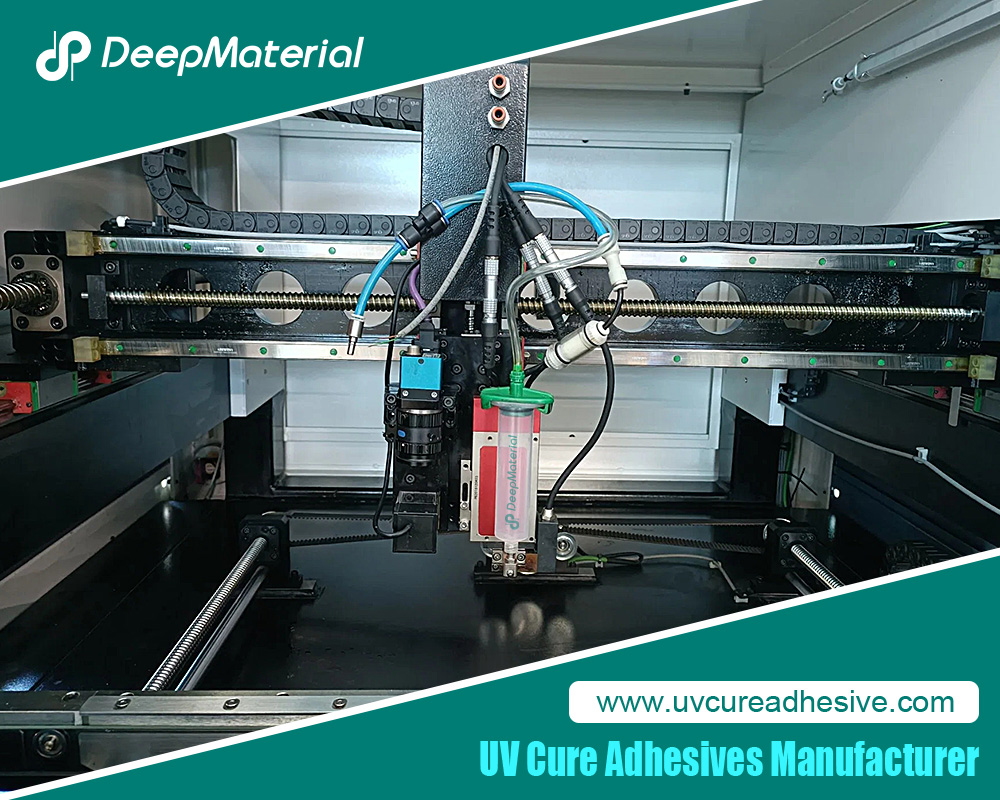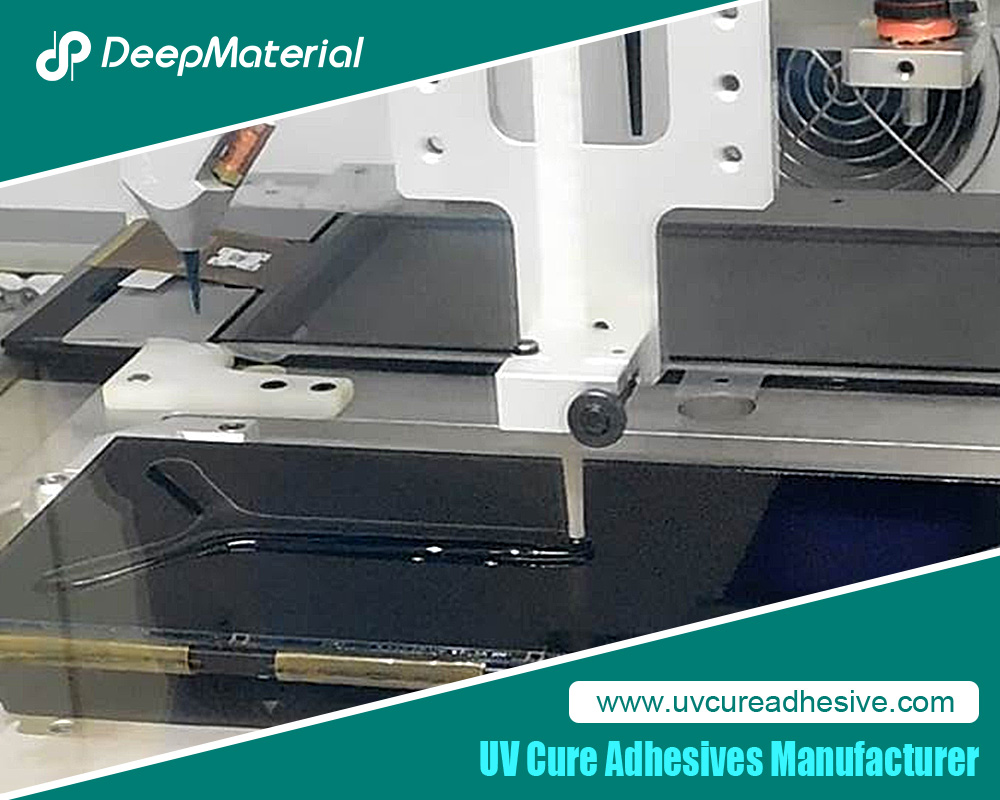Unveiling the Brilliance of UV-Cured Epoxy Resin: Revolutionizing Industrial Applications
Innovations in industrial materials often reshape the landscape of manufacturing, offering improved efficiency, durability, and versatility. Among these innovations stands UV-cured epoxy resin, a marvel gaining traction across various industries. This article explores the intricacies of UV-cured epoxy resin, its applications, benefits, and its transformative impact on modern manufacturing processes.
Understanding UV-Cured Epoxy Resin
Epoxy resins are thermosetting polymers renowned for their exceptional adhesion, chemical resistance, and mechanical properties. Traditionally cured using heat or chemical catalysts, epoxy resins have long been indispensable in industries ranging from aerospace and automotive to electronics and construction.
However, the advent of UV-cured epoxy resin introduced a paradigm shift in epoxy resin technology. UV curing involves using ultraviolet light to initiate a photochemical reaction that transforms liquid resin into a solid, cross-linked polymer. This curing mechanism offers several advantages over conventional curing methods, including:
- Rapid Curing: UV-cured epoxy resin cures within seconds or minutes, significantly reducing production time compared to thermal or chemical curing methods.
- Energy Efficiency: UV curing does not require high temperatures, thus minimizing energy consumption and environmental impact.
- Precise Control: UV curing enables precise control over the curing process, ensuring uniformity and consistency in the final product.
- Reduced Volatile Organic Compounds (VOCs): Unlike solvent-based curing systems, UV curing produces minimal VOC emissions, contributing to a safer working environment and compliance with regulatory standards.
Applications Across Industries
The versatility of UV-cured epoxy resin makes it indispensable across a wide range of industries. Here are some notable applications:
- Electronics: UV-cured epoxy resin is extensively used in electronic encapsulation and printed circuit board (PCB) assembly due to its excellent adhesion, moisture resistance, and electrical insulation properties.
- Automotive: In the automotive industry, UV-cured epoxy resin finds application in coatings, adhesives, and composite materials, enhancing durability and corrosion resistance while reducing manufacturing time.
- Aerospace: UV-cured epoxy resin is used in aircraft interior components, composite structures, and adhesive bonding, where lightweight, high-strength materials are crucial for performance and fuel efficiency.
- Medical Devices: The biocompatibility and sterilizability of UV-cured epoxy resin make it ideal for medical device manufacturing, including catheters, dental materials, and surgical instruments.
- Packaging: UV-cured epoxy resin is employed in food packaging, labels, and flexible packaging films, offering superior barrier properties, printability, and product protection.
Benefits and Advantages
The adoption of UV-cured epoxy resin offers numerous benefits to manufacturers across various industries:
- Enhanced Productivity: UV-cured epoxy resin’s rapid curing speed accelerates production cycles, enabling manufacturers to meet tight deadlines and increase output without compromising quality.
- Improved Quality: UV curing ensures uniform curing throughout the material, minimizing defects such as voids, shrinkage, and unevenness, enhancing product quality and consistency.
- Cost Savings: Reduced energy consumption, shorter processing times, and lower scrap rates translate into significant cost savings for manufacturers, making UV-cured epoxy resin a cost-effective solution in the long run.
- Environmental Sustainability: UV curing’s energy-efficient nature, coupled with the absence of solvent emissions, aligns with sustainable manufacturing practices, reducing carbon footprint and promoting environmental stewardship.
- Design Flexibility: UV-cured epoxy resin can be formulated to meet specific performance requirements, offering designers greater flexibility in material selection and product development.
Challenges and Considerations
While UV-cured epoxy resin offers compelling advantages, specific challenges and considerations merit attention:
- Substrate Compatibility: UV curing may not be suitable for all substrates, particularly those that are opaque or contain UV-absorbing additives. Surface preparation and compatibility testing are essential to ensure proper adhesion and curing.
- Equipment Investment: UV curing systems require specialized equipment, including UV lamps, conveyors, and control systems, which entail upfront capital investment and ongoing maintenance costs.
- Material Selection: To ensure compatibility with specific applications and performance requirements, UV-cured epoxy resin formulations should be selected based on factors such as curing speed, viscosity, adhesion, and chemical resistance.
- Process Optimization: Optimizing the UV curing process involves fine-tuning parameters such as irradiance, exposure time, and temperature to achieve desired curing kinetics and mechanical properties.
- Health and Safety: While UV-cured epoxy resin is generally considered safe when properly handled, exposure to UV radiation and uncured resin may pose health risks, necessitating appropriate safety measures such as protective equipment and ventilation.
Future Outlook and Innovations
The future of UV-cured epoxy resin holds promise for further advancements and innovations. Ongoing research focuses on enhancing cure kinetics, developing novel resin formulations, and expanding application domains. Additionally, advancements in UV curing technology, such as UV LED systems and inline monitoring techniques, are poised to improve process efficiency and quality control.
Innovation in UV-Cured Epoxy Resin: Continuing the Evolution
Continuing from the preceding discussion, the evolution of UV-cured epoxy resin is marked by ongoing innovation and research endeavors to address current challenges and unlock new possibilities. Here, we delve deeper into some key areas of advancement:
- Formulation Development: Research efforts focus on developing novel resin formulations tailored to specific applications and performance requirements. This involves fine-tuning resin chemistry to optimize properties such as adhesion, flexibility, and chemical resistance while minimizing shrinkage and yellowing upon curing.
- Additive Integration: Incorporating additives into UV-cured epoxy resin formulations enhances various properties, such as UV stability, flame retardancy, and antimicrobial properties. Additives such as UV absorbers, antioxidants, and flame retardants play a crucial role in expanding the application range and improving the durability of cured materials.
- Biobased Resins: With growing emphasis on sustainability and environmental responsibility, there is increasing interest in developing biobased UV-cured epoxy resin formulations derived from renewable sources such as plant oils, lignin, and bio-based monomers. These biobased resins offer a promising avenue for reducing reliance on fossil fuels and mitigating environmental impact while maintaining performance and quality.
- Functional Coatings: UV-cured epoxy resin coatings are being explored for functional applications beyond traditional surface protection, including antimicrobial coatings for medical devices, self-healing coatings for automotive applications, and superhydrophobic coatings for packaging and consumer electronics. These functional coatings offer added value by imparting specific properties to the substrate, such as enhanced durability, cleanliness, and aesthetics.
- 3D Printing: The marriage of UV-cured epoxy resin with additive manufacturing techniques, particularly stereolithography (SLA) and digital light processing (DLP), opens new frontiers in rapid prototyping and customized manufacturing. UV-curable resins formulated for 3D printing exhibit precise curing control, high resolution, and excellent surface finish, enabling easy fabrication of complex geometries and functional prototypes.
- Innovative Materials: Advancements in nanotechnology and material science enable the development of intelligent UV-cured epoxy resin composites with responsive properties, such as shape memory, self-healing, and stimuli-responsive behavior. These intelligent materials hold immense potential for applications in aerospace, healthcare, and consumer electronics, where adaptive and multifunctional materials are in demand.
- Inline Monitoring and Control: Real-time monitoring and control of the UV curing process are critical for ensuring product quality and consistency. Advances in sensor technology, spectroscopic analysis, and process automation enable inline monitoring of essential parameters such as UV intensity, resin viscosity, and cure depth, facilitating precise control and optimization of the curing process.
Conclusion: Pioneering the Next Frontier
In conclusion, the journey of UV-cured epoxy resin is a testament to human ingenuity and innovation, driven by the relentless pursuit of excellence and sustainability. From its humble beginnings to its current prominence across diverse industries, UV-cured epoxy resin continues to push the boundaries of what is possible, unlocking new opportunities and revolutionizing manufacturing processes.
As we stand on the cusp of a new era of materials science and engineering, the future of UV-cured epoxy resin shines bright with promise. With ongoing advancements in formulation design, additive integration, functional coatings, 3D printing, innovative materials, and process optimization, UV-cured epoxy resin is poised to spearhead the next wave of technological innovation, shaping the future of industrial manufacturing and beyond. As pioneers in this frontier, let us continue to explore, innovate, and collaborate toward a brighter, more sustainable future powered by UV-cured epoxy resin and its boundless potential.
For more about unveiling the brilliance of UV-cured epoxy resin: revolutionizing industrial applications, you can pay a visit to DeepMaterial at https://www.uvadhesiveglue.com/ for more info.




